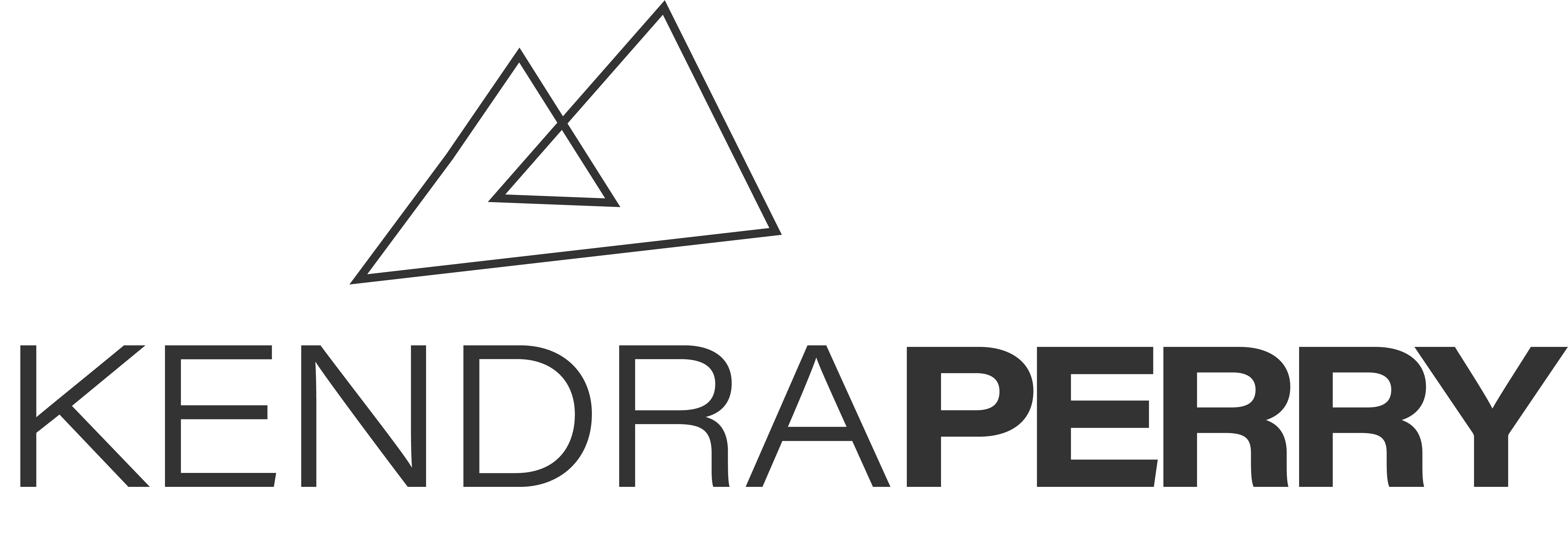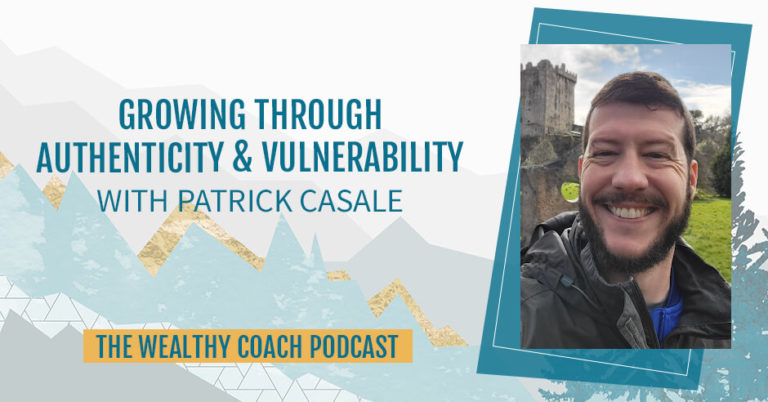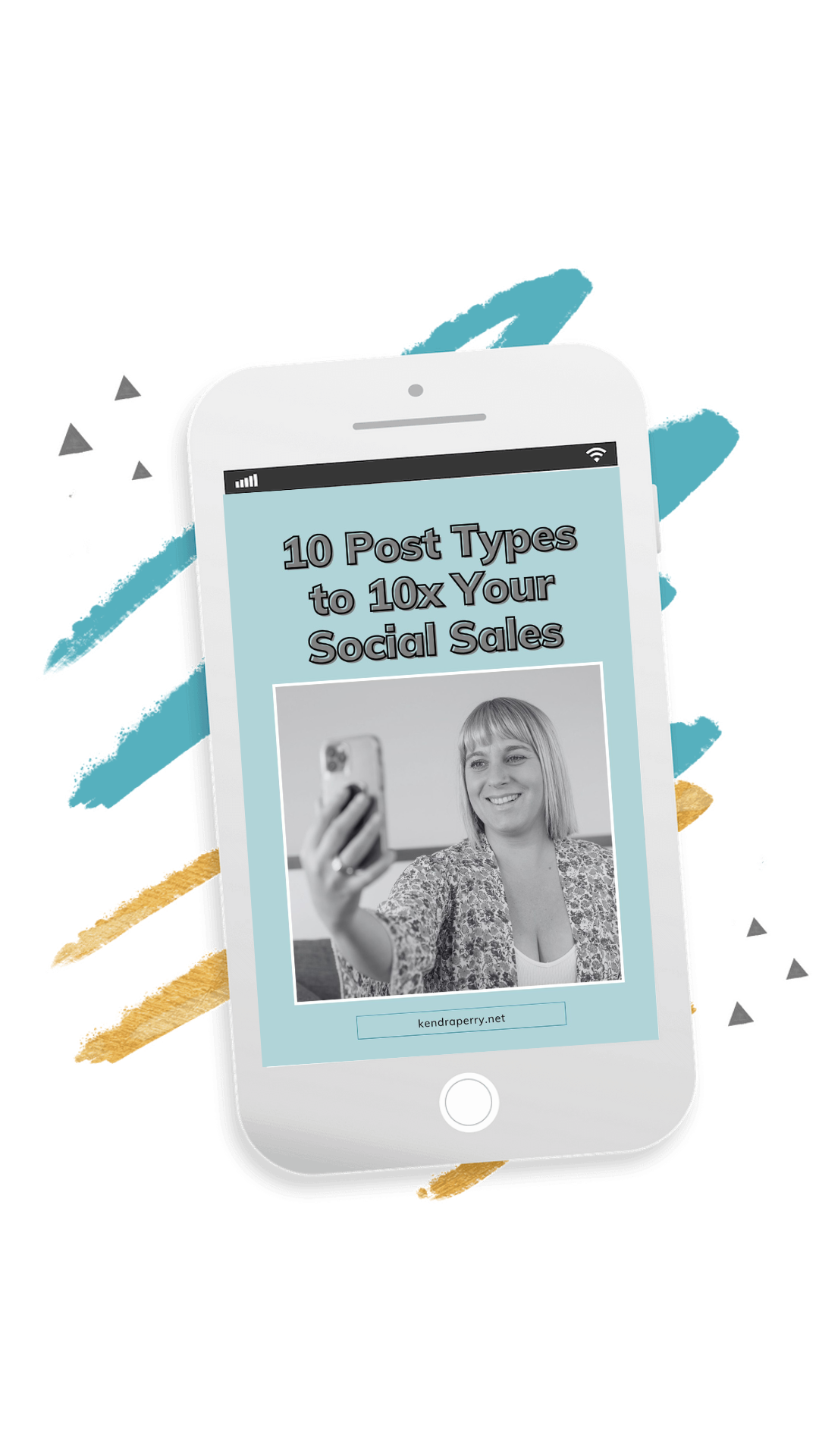Authenticity and vulnerability are big buzzwords in the current social and psychological space. But how do these two things facilitate growth? Joining Kendra Perry today is Patrick Casale. Patrick is a Licensed Clinical Mental Health and Addictions Therapist and the owner of All Things Private Practice and Resilient Mind Counseling. He is passionate in reducing shame and stigma around mental health and helping mental health entrepreneurs break the mold, work through their fears and insecurities, and embrace their authenticity. In this episode, Patrick breaks down the concepts around authenticity and vulnerability within the context growing and levelling up in business such as imposter syndrome and money trauma. Don’t miss out on valuable insights on overcoming self-doubt and owning your true self by tuning in.
—
Listen to the podcast here
Growing Through Authenticity & Vulnerability With Patrick Casale
I’m always stoked to be here and excited for another amazing guest interview. This time, we are speaking with Patrick Casale. We are talking about mental health, vulnerability, authenticity, Imposter syndrome and some tools for you to work through some of those things. This is an amazing conversation with Patrick. I’m super grateful that we had this great conversation.
A little bit more about Patrick, he is a Licensed Clinical Mental Health and Addictions Therapist. He is the owner of All Things Private Practice. He’s a private practice coach and strategist, a group practice owner, a motivational speaker and a podcast host. He has been featured on Private Practice Startup, Abundance Practice Building, Therapy Reimagined, Not Your Typical Psychotherapist, Selling the Couch and The Modern Therapist’s.
Patrick is a passionate advocate of reducing the shame and stigma of mental health, as well as Imposter syndrome. Patrick helps mental health entrepreneurs break the mold, work through their fears and insecurities, and embrace their authenticity. You’re going to love this interview with Patrick so let’s dive into it.
—
Patrick, welcome to the show.
Thank you so much for having me on.
I’m very excited to talk about our topic. Before we dive into that, can you tell our audience a little bit about you? What do you do? How did you get into doing this?
I am in Asheville, North Carolina. I am a Licensed Clinical Mental Health Counselor and Addictions Specialist but also a private practice coaching consultant for therapists starting their businesses, a podcast host and a retreat planner. How did I get into this? That’s a long story but I got my Master’s in Counseling in 2015 and started the consulting, coaching, podcasting and retreat business in 2020 when COVID happened. It’s been a whirlwind. COVID was devastating but it was also good for my ADHD brain to be creative inside of my home.
Are you primarily focused on helping mental health practitioners start their practice?
Yes. I help therapists all over the country start, scale and grow their practices. I have been speaking at conferences, doing group coaching programs and moderating a Facebook group called All Things Private Practice. It started in 2020 with a lot of Imposter syndrome. We have got 20,000 members and growing all the time. It’s been crazy to look back at it and see what that looked like from doubting myself thinking it could never be possible to like, “Here we are.”
Do you find there’s a mindset shift that has to happen? With a lot of mental health practitioners, they’re typically working in person with people. Is there a shift when people want to start going online?

There’s a mindset shift. As COVID happened, everyone was scrambling to get online and still see their clients because that’s their livelihood. If you can confidently, concisely and transparently walk a client through how online therapy works, it’s no different than being in person. The clinicians who struggle with that don’t have a confident approach to talking about online therapy. I saw a lot of them lose a lot of their caseloads over the last few years because they couldn’t adapt to the new model. People still want in-person too. That’s always going to be a thing but teletherapy is the wave of the future.
People travel a lot and move around. It’s nice as a business owner too to be location-independent.
Working from anywhere is a new-in thing. We can podcast and work from anywhere. That allows us to have freedom and flexibility. The whole reason people become entrepreneurs is freedom, flexibility and autonomy. I don’t want someone telling me what to do. I found myself in middle management all the time. Community mental health always questioned every decision that we were making. That’s how I know that I can’t work for somebody anymore. It’s not possible.
I want to start by talking about the concept of authenticity. I feel like this is a big buzzword. Everyone is trying to be authentic and talking about authenticity but I’d love to know how you define and look at it.
I coach therapists on embracing authenticity all the time because grad school teaches us to be a robotic blank slate who aren’t allowed to show our personalities. Authenticity is about moving through the world in alignment with your values. Whether that is being social justice-oriented, blunt and direct or whatever the case may be, it’s important because it’s freeing. When you’re not authentic and not acting in your true self, you’re going to feel a disconnect and artificiality. Your clients are going to understand that too.
If you’re only willing to stay surface level as a therapist, for example, you’re not willing to talk about your struggle and experiences, curse in session or realize, “I’m allowed to laugh, cry with my clients and text my clients back when it’s appropriate,” life and business feel so much more in alignment and fulfilling but we are so conditioned to say, “You’re a mental health clinician, so you have to operate and interact a certain way. You have to be a blank slate and be robotic. All you do is head nod and reflect.”
No. Wear your pink hair and show your tattoos. Be yourselves because ultimately, that’s what connects and draws your ideal clients in. With authenticity, it’s an attract and repel process. You’re going to attract the people you are meant to work with and repel the people who are like, “No, you’re not for me because of how you speak, show up and dress.” That’s okay, knowing that we can’t be for everybody.
You mentioned it’s very freeing and I agree because you can’t be for everyone. When you’re trying to be for everyone, you become those people pleasers. That’s pretty exhausting.
People-pleasing is exhausting. It comes back to putting yourself second, trying to adapt and being a chameleon to what you think other people want from you. That can be codependent too. There’s a part of that that can be codependency. When we’re moving through this world, especially in business ownership, it is freeing.
I still get hater emails from some of my followers where they’re like, “You curse too much. That makes you sound lazy and unprofessional.” I’m like, “You’re not for me. You and I would never work well together and that’s okay.” It’s about being able to embrace that but also know that it comes with more vulnerability. People can critique and say whatever they want when you’re being more authentic. It’s about not taking it personally too.

I get a lot of hate for the swearing thing too. I always have. I’m like, “Who cares about swearing in 2022?” It’s funny. I’m like, “If you don’t like swearing, that’s fine. You don’t have to. I’m not your girl because if we were to hang out in person, I have a chucker mouth. I’m the girl who sprays in front of your kid and says, ‘Sorry. I swore in front of your seven-year-old. My bad.'”
I do that all the time. I’m like, “I didn’t realize that I can’t speak like that in front of your child because I don’t have children. My bad.”
The other thing I wanted to mention because it’s okay as a therapist and this is true for my audience. We’re coaches too. It’s good to be real with your audience. I’ve seen a lot of counselors. I’m into working on my mental health. My favorite counselor, the reason I like her so much is that she’s real. Sometimes, she’ll speak about her experience. I love it because it helps you feel seen and heard.
I’ll give you a quick example. I struggled with a gambling addiction for fifteen years of my life. I talk about it all the time. I’m autistic and ADHD. I will talk about this stuff with my clients. I’ll write it on my web pages and my copy because that allows clients to immediately feel like they can let their guard down, feel seen and feel like, “I can come into session and be myself. I’m not going to get judged. This person is a therapist with a Master’s degree and they struggle too.” It offers light at the end of the tunnel but I also think it normalizes the human experience. We all struggle regardless of our education and experience. I noticed a big shift in me.
I own a group practice and we have twelve clinicians and a psychiatrist in town but I empower them to show their tattoos and blue hair, curse in their content, be authentic and share some of their struggles. We’ll always be full because clients will call us and say, “Finally, here’s a therapist who gets me, who isn’t going to be like buttoned up and stuffy.” That doesn’t mean that we’re the therapist world who like to throw the unethical world around all the time.
We’re not unethical, boundary breakers or texting our clients as friends but ultimately, if you can show up as yourself, it models this behavior and normalizes the human experience. For example, my gambling addiction, if I’m able to talk about, “Fifteen years of my life were destroyed by this thing but here I am, a multiple business owner and have been in recovery since 2012,” that offers a glimpse of hope. Things can be different. If I’m not willing to talk about that, how can you ever go deeper than surface-level conversation?
I don’t think people want perfection. When I was a health coach, I helped women with their chronic fatigue while suffering from chronic fatigue. I had a lot of Imposter syndrome and blocks around that because I was like, “Are people going to want to work with me when I’m not fully healed?” I didn’t prove it. I was doing better. I was on the road to recovery but I felt like, “I need to be perfect.”
Once I let go of that, I had people choose to work with me because of it. They’re like, “You get it. You’ve been through it and you’re not perfect. You don’t pretend to be.” Authenticity, ultimately, it’s going to come with vulnerability. I don’t think the two are mutually exclusive. Can we speak a little bit more about vulnerability and why that’s hard for people?
Vulnerability is hard for people because when you’re vulnerable, you are exposed. You’re letting people into your actual world instead of the facade that we can put on. That can feel scary because that means you’re saying, “I’m having a hard time. This is difficult for me. I’m human. I don’t have it altogether. I can’t do it on my own.”
We, as a culture, don’t like asking for help or exposing ourselves that way because we equate it to weakness or the inability to do things on our own. In reality, it is not that at all. If you’re vulnerable, you’re being real and letting people know, “This is what I’m going through.” I’ll write about my experiences on social media for my following all the time because I even wrote a long post about Imposter syndrome.
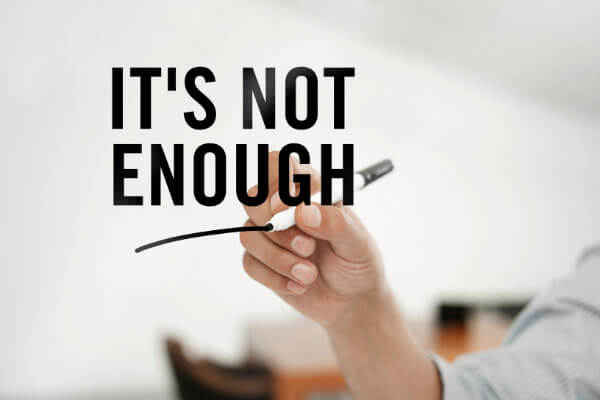
I share it with my audience because if you can look at me and say, “This guy is successful. He has these businesses and all this stuff but still struggles with this thing every day. That allows me to feel like it’s okay to do the same thing.” There is fear there. It’s about, “What has society told us their messaging? It’s not okay to be weak.” We associate vulnerability with weakness.
I’ve always struggled to show emotion. I want to seem strong. Sometimes I can be this stoic, even though I’m dying inside. It’s been a big journey for me to let down my walls, let it go and be okay with not having it all together sometimes. Sometimes I can be emotional and cry and it’s okay. Can we speak a little bit more about Imposter syndrome? This is something my audience struggles with a lot.
Imposter syndrome should be my middle name. I’ve always experienced it. For those of you who don’t understand what Imposter syndrome is, here’s a quick definition. It’s the feeling of fraudulence and competence like, “I’m not as good at. I lacked in being here. People are going to find me out when I try to do something big, scary or bigger than myself. I shrink back in paralyzing perfectionism. I can’t let the world see this until it’s perfect.”
It is painful and makes us doubt ourselves. There are a lot of reasons for Imposter syndrome. I don’t know if you want me to go down that rabbit hole but there are reasons for this, especially for women and for women of color, where colonialism and racism play a part in Imposter syndrome. If you’re always told, “You’re not good enough. We let you be here. You’re not as competent,” you’re going to question yourself. The same goes for women in the workplace. If everything is male-oriented in society, you show up at work, get paid less and your roles are different, like men are doctors and women are nurses, that is going to make you be like, “Why am I here? Do I deserve to be here?”
There’s also an entrepreneurial insecurity side of Imposter syndrome that comes up when we are stepping into growth, something different, scary or unknown. When we do that, our brain immediately says, “This is dangerous. You need to step back.” That goes back to development from prehistoric times, where our brains tell us when we sense danger. Through the development, as you’re doing something scary, it’s saying, “This is too scary and dangerous. Don’t try it. ”
In reality, we need to do it anyway, step into the fear and embrace it instead of letting the fear paralyze us. When we’re doing that, we grow. We don’t grow in stillness. We all know this. As a therapist, we tell our clients this all the time but we don’t always practice what we preach in therapy. It’s important to think about it that way. It’s a message and a reminder saying, “This is scary.”
That narrative and the harsh inner criticism that shows up for people, the voices that are like, “You’re not good enough,” I equate this to childhood trauma stuff. What did you experience growing up? What were you told? What was the messaging you received about accomplishments, achievements and how you move through the world?
If you get an A in Math but you get a D in English and you’re told, “You’re so smart but what is wrong with you? Why can’t you do this,” that makes a conflicting perspective as a child. As you become an adult, you start to question, “Am I good at this? Do I associate achievement with love and connection?” This is a very complex subject. I talk about it all the time. The reality is you’re not alone if you’re experiencing it. There are lots of strategies to work through it.
What would be maybe some easy-to-implement strategies that the readers could put into action?
Some good strategies right away are to get a therapist and have some good support systems where you can openly name this because when we put it out to the world, it has less power over us. Being able to get it out of your head because that’s where it sits. It’s cognitive and a thought. It doesn’t have to have power. When you’re starting something new, a lot of times, you shrink back.
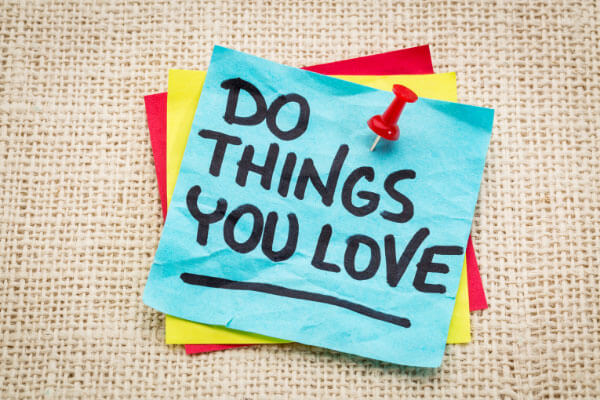
We get into perfectionism mode and give ourselves permission to fail. Failure is a way to do it differently the next time. I always think about people trying to ride a bike and falling. You get back up and realize, “This is what I did wrong. I’m going to shift gears but how would I know how to do this if I’ve never done it before?” It’s the same type of mentality.
Another thing that I like a lot is making it playful. I’m not a Harry Potter fan but someone brought this to my attention one day and I was like, “That makes a lot of sense.” Harry Potter, Boggarts, the fears that these kids have and the way they overcome these fears is by making them playful. I always like to say, “With Imposter syndrome, give it a funny voice or accent or a name of someone you don’t like or respect so that when it shows up, you can make it playful. You can tell it to shut up if you need to and minimize the voice.” That doesn’t mean the voice goes away but it does mean that the voice doesn’t have to paralyze you and prevent you from moving forward.
Give it a voice of something. It’s all like an entirely alter ego kind of thing.
It comes up and it’s going to come up. Another part is knowing that it can exist. It doesn’t mean that there’s something wrong. Don’t let it paralyze you from doing and pursuing the things you love.
It comes up in entrepreneurship all the time. I see it so much with my students and I’m sure you see it a lot with your clientele as well.
People starting businesses are going to second guess themselves like, “What we don’t know we don’t know. Am I going to be successful? Is this going to flop? I don’t know what I’m doing.” Some of that is valid. Some of those fears are real. We don’t want to discount that. We don’t want to be like, “No, you should never be afraid of doing something different or anxious because that is not how that process should go.” I like to think about the analogy of using fear as a gas pedal instead of a brake. When you know that that’s coming up, you’re on the right track.
It’s almost like a sign like, “You’re right where you should be.” I don’t feel like you would experience Imposter syndrome if you were inside your comfort zone.
We don’t experience discomfort in comfort. If we’re going to stay stagnant, still and we don’t want to do anything bigger than that, we’re never going to experience these feelings. If you want to step into becoming an entrepreneur or doing something daring, bold or different, you’re going to experience self-doubt. If you weren’t experiencing self-doubt, I would question that a little bit. That would maybe be a bit narcissistic to think, “I’m going to be perfect at this even though I’ve never done it before.”
I want to come back around to the concept of authenticity. To me, if you’re going to be authentic, you need to know yourself. Would you agree with that?
I would 100% agree with that. It’s hard to be authentic if you don’t have some introspection or insight into who you are.

I feel like a lot of people don’t know who they are. I see that a lot.
Knowing who you are coming with, working through pain, suffering and some struggles too. I’m not going to knock people who don’t go to therapy because there are people who don’t have access to that care. I do think you have to do your work. If you don’t, it’s hard to go deep if you stay above the surface. If you stay above the surface, you’re probably going to fall into that people-pleasing mode of like, “I’m doing things to make sure other people stay connected to me. If I don’t do things for them and I don’t say yes all the time, they’re not going to want to stay around.” That is an unhealthy coping skill but it is a way that people move through the world as well.
With this authenticity and knowing yourself, building a business pushes you to do this. This is the personal development journey that seems to be intertwined with entrepreneurship. I didn’t know myself until I started a business. I was forced to go inward because everything was triggering me all the time.
I was like, “I thought building a business would be easy but I feel like crap all the time. What’s going on? This is crazy.” With the whole branding concept of building a business, that’s about figuring out who you are and then putting that into your online presence. There’s this beautiful intersection that happens between entrepreneurship and personal development. It almost forces you.
Building a business and being an entrepreneur is hard. If we can embrace that and give ourselves permission to struggle within it, it makes it a little bit easier. It’s like a wave. Some days are great where you’re like, “I love this life.” Some days suck and you question every decision you’ve ever made. It’s pretty normal for it to go back and forth. Do not let it get to the point where the hard times outweigh the good and make you want to give up. I imagine for anyone reading, you want to be an entrepreneur and small business owner for a reason. That doesn’t come with just a snap of the finger. It takes hard work to get this going.
For the practitioners that you work with, the ones that you helped start their practice and that thing come online, besides Imposter syndrome, what are some of the biggest mindset blocks that they come up against?
Perfectionism, for sure like, “I’ve got to have my website and my psychology perfect.” I’m like, “Being present and out there is better than perfect and non-existent.” That’s a big one for people. I’m the type of person who likes to build a plane as I fly it. I create ideas and I’m like, “How am I going to make this happen?” Perfectionism is a huge one and then money mindset stuff. We, therapists, are conditioned in our culture of helping professionals to sacrifice ourselves and put ourselves second. It’s even a running joke in grad school like, “You don’t get into this field to make money.”
At the same time, newer clinicians coming into practice struggle with money stuff because they’re like, “How can I charge people to help them? Nobody can afford me. I can’t even afford to pay my therapist.” All of this money thing comes up. Everyone has to work through their money traumas and histories but those narratives are real. It creates a challenge because a lot of therapists subsidize their treatment by saying, “I will give it away for free or low cost,” but you can’t pay the bills with free or low-cost service. A lot of therapists struggle to be business owners because 99.9% of us never had any business training or experience.
It’s so similar to the health coaching world. They get very limited business training in the certification program that they do. I think too, because health coaches often have had health issues that they feel like a bit gross or something when they’re taking money from people who are in pain.
That’s the same thing for mental health. It’s like, “People are struggling. How can I charge them?” That’s very true. What we’re doing is so valuable to society. We’ve got Master’s degrees, if not PhDs. We’ve gone through thousands of hours of supervision and licensure experience, not to mention crushing student loan debt in the United States. You need to charge your fees, whatever you want those to be. You cannot keep the lights on and pay your bills if you’re giving yourself away.
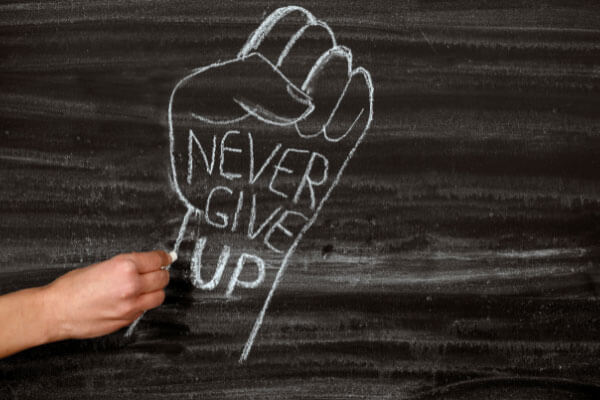
I don’t know who said this but the transformation is in the transaction. People don’t have any skin in the game when they’re not paying for something. I feel like the more money that people pay, the more skin they have in the game and almost like the more committed they are to getting the results.
I can see that perspective, for sure. I used to sell cars up in New York when I lived up there. If you got a $100 deposit on a $30,000 car, people aren’t that invested in following through. If I got a $1,000 deposit, it’s a very different mindset. I do believe you have to get comfortable talking about money. If mental health clinicians are reading, money is triggering but you have to be able to talk about it.
Money is triggering to most people. Every time I post about money on social media, I get a lot of angry people.
Money is one of those polarizing topics. It’s a taboo topic almost. A lot of our families didn’t talk about money growing up. As kids, you probably knew your parents either paid the bills or they didn’t pay the bills. You either lived with insecurity, stress and trauma around money or you didn’t know anything about it. Without having conversations about money, it makes it uncomfortable because it’s very triggering for people.
It’s super polarizing but it is true. If you want to be an entrepreneur, you have to dig into your relationship with money, unwind it and get even more comfortable looking at your money. I remember I wouldn’t even look at my bank account because I felt shame when I looked at it. I’d always go into like my overdraft because I avoided looking at it. I’d always overspend.
There’s energy to money. We spend and make it. The more we can get comfortable with spending the money that we have, the more we can embrace the fact that we can grow and more money. It’s important to examine it and see what stuff comes up when you start thinking about it.
I interviewed a woman named Caroline Addington on the show. She was amazing but she’s like, “Look at your relationship with money as a teacher and figure out what you can learn because there’s a lot to be learned from how you interact with it.” I love that idea. To work through your mental health stuff and mindset stuff, what does your self-care routine look like?
I’ve been in my therapy on and off since I was five. That’s always a piece that needs to be consistent. I also think that if you’re a therapist, you need to be in therapy. It’s one of those fields where you have to do the work. I have had to coach on and off for the last couple of years while I’ve developed and grown and scaled my businesses. That’s always useful to have that type of mentorship, especially from a different perspective.
Traveling is a huge one for me as an entrepreneur. I became an entrepreneur for a reason. I’ve been to 30 countries in the last few years. I love the ability to meet different cultures, eat different food and meet and experience different people. I play soccer. I’m a competitive soccer player. I played in college and still now.
Everyone needs a therapist. Some people don’t have access but I have three counselors that I see for all different things. I have this whole support team and I wouldn’t have it any other way.

It’s so crucial. If you do have the ability and even if you’re questioning it like, “Can that help me,” talking to someone can be very intimidating but it’s the realization that we don’t have a lot of time in our society to have 60 minutes of our time. Be heard in a space where the information isn’t going anywhere.
It’s judgment-free. The person has no skin. They’re not a part of the situation. There’s no bias. They’re there to listen, support and give you tools. Sometimes, I need to vent to someone I know is not going to have an opinion.
Unbiased opinion, non-judgmental space, we can’t even put a value on that because it’s so invaluable.
You have a gift for our audience, your Free Private Practice Startup Guide. Can you tell us a little bit about that?
It’s a business startup guide. It can apply to coaching as well. You can download it on my website. It walks you through business startup, getting the appropriate things in place to make sure that you’re doing things the right way and also have the right resources. It could be helpful.
If people want to stalk you online, how can they connect with you?
There are multiple ways. My website is AllThingsPractice.com. My podcast is All Things Private Practice. There are new episodes every Sunday. I moderate the All Things Private Practice Facebook group and host entrepreneurial treats throughout the world. I’ve got one in Ireland, which is cool. My Instagram and my TikTok are @CasaleCoaching.
Patrick, thank you so much for having this very important conversation about authenticity, vulnerability, Imposter syndrome and all the things. I appreciate you being here. Thank you for reading, everyone. I will see you next episode where I help you become wealthy AF.
Thank you, Kendra.
Important Links
- All Things Private Practice
- All Things Private Practice Therapy – Facebook
- Free Private Practice Startup Guide
- All Things Private Practice Podcast
- Instagram – Patrick Casale
- @CasaleCoaching – TikTok
About Patrick Casale
 Patrick Casale is a Licensed Clinical Mental Health and Addictions Therapist. He is the owner of All Things Private Practice. He is a Private Practice Coach and Strategist. He is a Group Practice Owner, Motivational Speaker, and Podcast Host. He has been featured on Private Practice Startup, Abundance Practice Building, Therapy Reimagined, Not Your Typical Psychotherapist, Selling The Couch, and Modern Therapists. Patrick is a passionate advocate, reducing shame and stigma of mental health, as well as impostor syndrome. Patrick helps mental health entrpereneurs break the mold, work through their fears and insecurities, and to embrace their Authenticity.
Patrick Casale is a Licensed Clinical Mental Health and Addictions Therapist. He is the owner of All Things Private Practice. He is a Private Practice Coach and Strategist. He is a Group Practice Owner, Motivational Speaker, and Podcast Host. He has been featured on Private Practice Startup, Abundance Practice Building, Therapy Reimagined, Not Your Typical Psychotherapist, Selling The Couch, and Modern Therapists. Patrick is a passionate advocate, reducing shame and stigma of mental health, as well as impostor syndrome. Patrick helps mental health entrpereneurs break the mold, work through their fears and insecurities, and to embrace their Authenticity.
